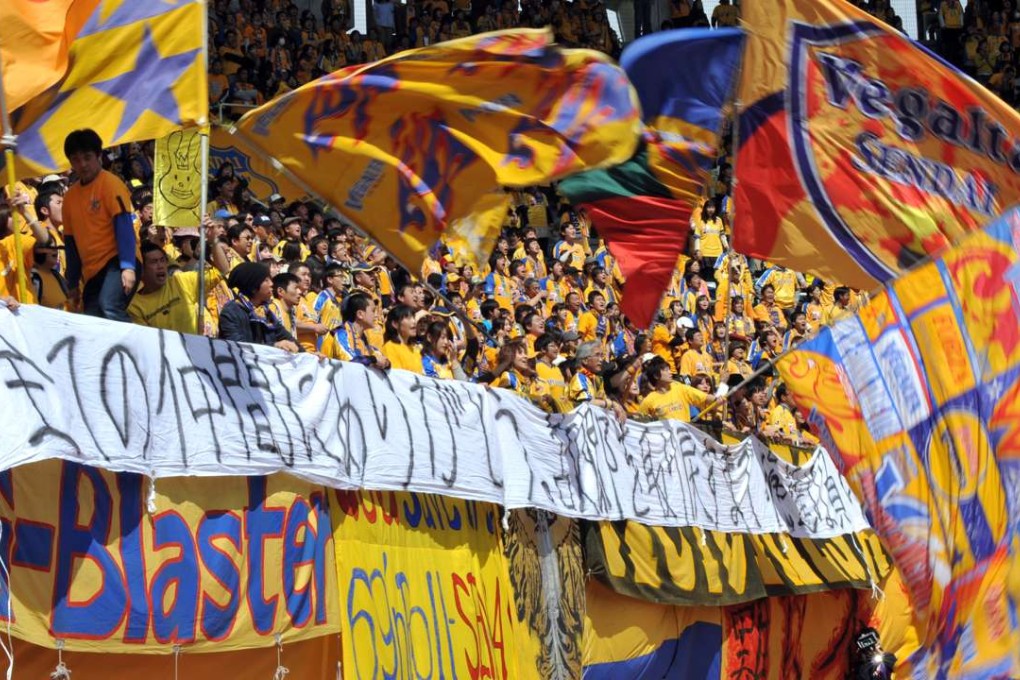Hong Kong-raised film-maker’s documentary chronicles how football team Vegalta Sendai helped bond a community devastated by 2011 tsunami
Moving film a powerful exploration of power of sport to bring people together

Expected to battle relegation, the team instead went on a remarkable unbeaten run after the tragedy, powered by a determination among players and fans that they had to give something back to people of their province whose lives had been devastated. The following season, they went even better, challenging for the title until the very last day of the season.
It’s a story told in moving detail in Vegalta: Soccer, Tsunami and the Hope of a Nation, by filmmakers Geoff Trodd and Douglas Hurcombe.
Hurcombe and Hong Kong born-and-raised Trodd, whose father was a popular RTHK radio personality in the sixties, John Wallace, made several trips to the region, winning the trust and confidence of locals, many of whom had lost family members, and capturing some powerful interviews and archive footage.
“We only just touched the surface [of the disaster] through the lens of a football team – football was just the kind of vehicle or backdrop, but the stories of the people were what we wanted to tell,” says London-based Trodd, who with Hurcombe spent several years and most of their disposal income and free time to get the film completed.